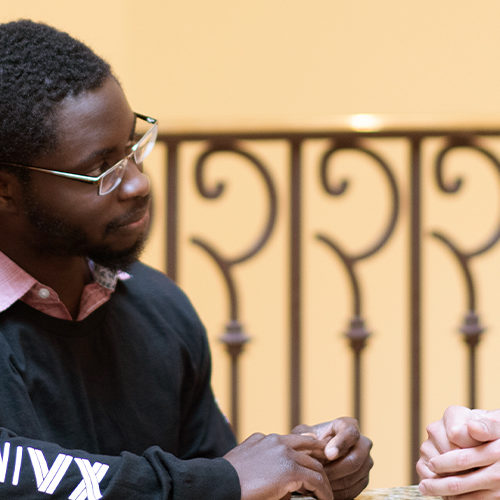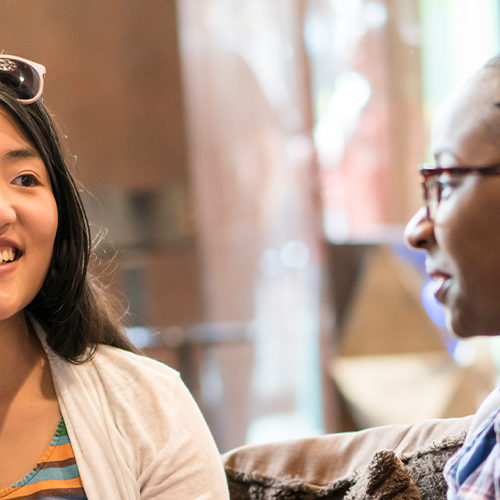Every time we meet someone new we are building bridges of connection and commonality. These bridges, when crossed, lead us to some of the best friendships. Creating a cross-cultural relationship is no different. Here are five things to keep in mind as you build the bridge of cross-cultural relationships with new friends from other nations.
Be Courteous
Most internationals come from Honor/Shame cultures. They communicate indirectly to prevent hurting people’s feelings. This is why many of them would say “Yes” or “maybe” to an invitation, for fear of offending their friend by saying “no”. When new relationships form there is a great degree of formality. Once strong relationships are established, communication remains respectful, but formalities are dropped. Observe your international friend’s behavior as they interact with you and match their courteousness. A big way to show this is by watching the way you address them. Politeness is a sign of respect in Indian culture. My husband of fifteen years still addresses my Indian Father as Dr. Gandhi, showing honor to his status in society and his educational accomplishments.
Be a Curious Conversationalist
It is common to learn a few sentences in the foreign language of our new friends in preparation to meet them. But this steals away a great opportunity to learn about them, from them. Not only does private learning backfire often, in mispronunciation mishaps, it also fails to take advantage of a tremendous opportunity to treat your friend as the teacher. Internationals are usually in the position of a learner. When they arrive in the US, they must learn language, how to shop, how to get around, where to find food, and a myriad of other simple things that were significantly different in their home countries. As wonderful as Google is to learn the culture of your new friend, they are the only expert in the field of their life and experiences. So be curious; ask a lot of relational questions. Four easy areas you can ask about which would solicit easy answers and help you learn about your friends are: their families, occupation/education, what they do for recreation, and their hopes for their time in America.
Be a story teller. Meals around the Indian home usually revolve around stories. When they match your curiosity with theirs, tell them stories about yourself and comparable experiences to what they shared with you. For example if they shared a story about their mother or father, reciprocate by sharing something about your parents. Magnify the commonalities, and understand the differences as you share stories.
Be Courageous:
In a world of political correctness we have been robbed of many opportunities to learn the deeper things about our international friends. We shy away from questions that are labeled “personal”, hoping we won’t offend our new friends. But, friendships, the good ones – are personal!
Be courageous and ask questions and get to know them deeper. When you are curious about something they say/do or experience, ask them about it. As an international, I did not know what being PC meant. I learned political correctness after I got to America.
When asked, I cherished the opportunities to explain why some Indians have a dot on their forehead, or why India had so many different languages. I loved the invitations to tell stories of how I grew up and wanted to hear the stories of how my American friends grew up. During my first years in the US, some of the questions that gave me a chance to tell my story were therapeutic to the homesickness in my heart. None of that would have been possible if not for courageous friends who probed me about my life in India. Remember while you do this, to make sure that the intent of your heart is not to come away with some funny anecdote you can share about India at the next dinner party you attend, but to truly strengthen the bonds of friendship with your new international friend. Your attitude matters more than you think. Crossing cultures can get awkward at moments, press on and be courageous to pursue your international friend!
Be Compassionate
As we shared earlier, even simple things like buying groceries and finding transportation becomes a challenge to your international friend. Be compassionate and available to help them navigate this new culture. Ultimately being human connects us in a stronger way than our different cultures disconnect us. We share similar desires; to love our families, to achieve something, and to live a life worth living.
We are more alike than we are different. Simply approach people from another culture through your humanity. The Google lens is too small to look through when you look at a culture, only the gospel lens can give you 2020 vision. The gospel is that Jesus came for ALL nations and so we must be about the nations.
Be Community oriented: Many non-western cultures is heavily community oriented. People often wonder how their decisions will affect their community first, before they worry about how they will impact them personally. Leaving a culture like that and entering an individualistic culture can be traumatic. On an average day, the people of India have meaningful interactions with every member of their immediate family, and most of their closest friends. As they enter the US they go from a people-rich life to being hard pressed to have one meaningful friendship.
When you meet your international friend, the goal should always be to include them and involve them with others in your life. To invite them into a greater community and a family away from home. Simply inviting other friends to lunch with you and your international friend can have a great impact in widening their world. While your international friend might feel uncomfortable going to church, connecting them to Christian community outside of the four walls of the church exponentially multiplies their opportunity to witness Jesus in action among his people.
Remember God made you for this! In God’s wisdom He has presented the incarnational representation of Jesus in you before this person. He does not send us on jobs he hasn’t already prepared us for. You are made for this. Go make an International friend!


